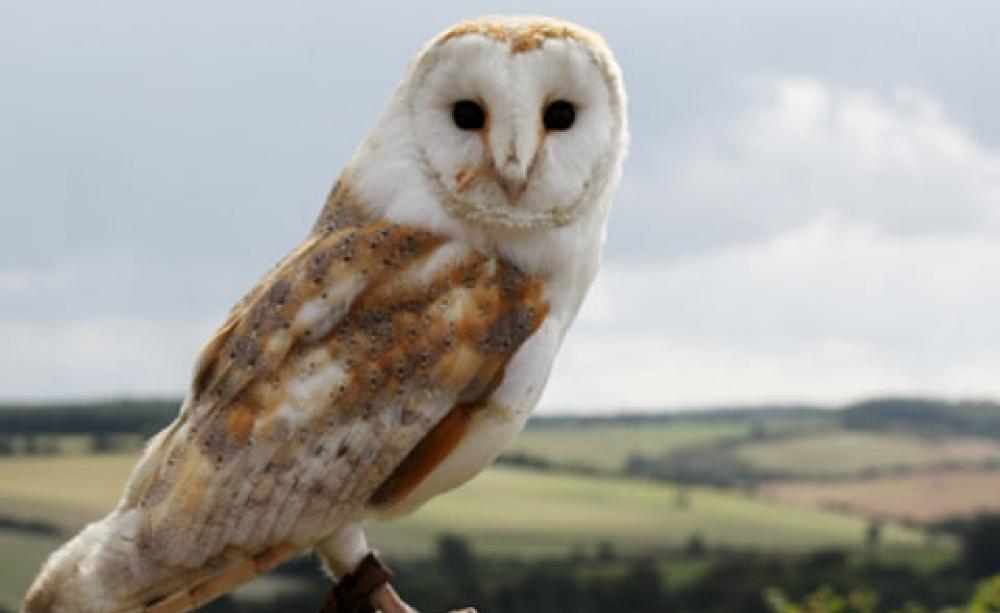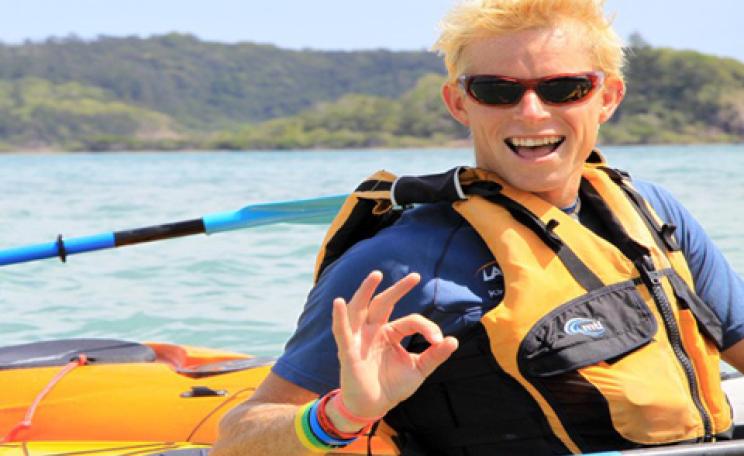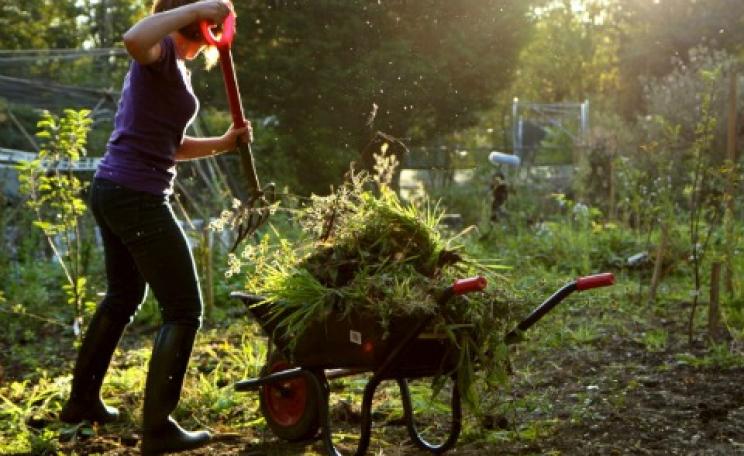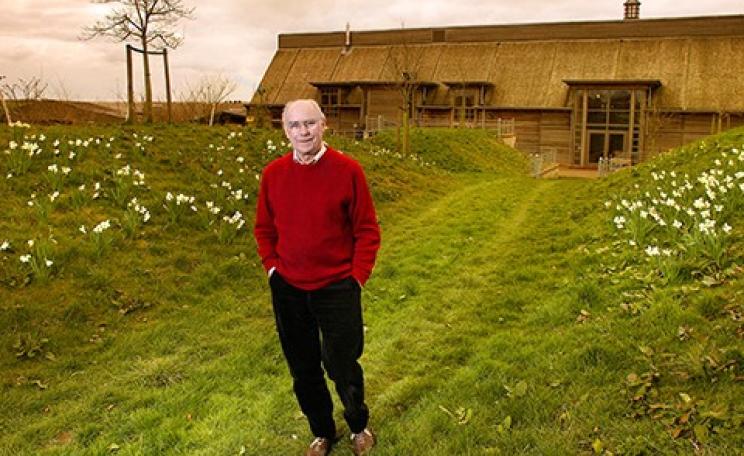START LOCAL: THE UK
iSpot
Ever wanted to know what that butterfly, bird or tree is? The Open University's iSpot website is designed to help anyone do just that. Upload pictures, share observations and connect with a social network of thousands of users, from beginners to experts.
Follow your passion
If you find a subject that you feel passionately about - an animal, an issue or a place - just get involved. Be part of the campaign and even help to raise money. There are hundreds of smaller conservation groups (too many to list here) that specialise in a particular area or species from barn owls and dragonflies to sharks and seals. With small conservation groups you can often see the impact of what you're doing as well as getting to know the subject really well.
Help protect our bees
Neonicotinoid pesticides have been implicated in our honeybee decline. Sign the Soil Association petition to help get them banned. UK bumblebees are also in trouble. The Bumblebee Conservation trust has a ‘gardening for bumblebees' page on its website.
Create a wildlife friendly garden
Letting your garden grow a little wild can help make it a haven for birds, bees, bugs and other creatures. See this Ecologist article on creating a wildlife friendly garden. The RSPB and Natural England also have useful ‘wildlife gardening' pages on their websites.
Join a Green Gym or volunteer
The BTCV run 'Green Gyms' across the UK where you can improve your health and the environment at the same time. All revolve around some form of conservation or gardening. Sessions are free and typically last three hours. To find one near you, click here. BTCV also run other conservation projects for willing volunteers involving a variety of tasks, sites and habitats. Click here to find opportunities near you.
Wildlife Trusts
The 47 regional Wildlife Trusts form the largest UK voluntary organisation dedicated to protecting habitats and species whether in the countryside, cities or even the oceans. The vision: 'an environment rich in wildlife for everyone'. Altogether the trusts manage 2,256 nature reserves covering more than 90,000 hectares. Become a member and get involved in conservation days and guided walks or sign your child up for Wildlife Watch, its junior branch.
Save our seas
The Marine Conservation Society (MCS) are a UK charity campaigning for clean seas and beaches, sustainable fisheries and protection for all marine life. MCS also produces handy online consumer guides on ‘Fish to Eat' and ‘Fish to Avoid'.
The Mammal Society
If you're interested in helping hedgehogs, otters and other British mammals, join The Mammal Society which works to protect them and halt the decline of threatened species by promoting conservation. There are also a number of other ways you can get involved.
The Wildlife and Wetlands Trust (WWT)
With a national network of nine specialist wetland visitor centres, WWT is a conservation organisation saving wetlands for wildlife. Become a member, volunteer at a WWT wetland centre or adopt a bird.
RSPB
Have the birds disappeared from your garden or local area? Find out what may be the cause here on the RSPB website. As Europe's largest conservation charity it works to secure a healthy environment for birds and other wildlife. Volunteer, support a campaign and identify birds using their online guide.
Protect wild spaces
- The Woodland Trust fights to save ancient woods under threat (click here to find out how to help) and creates new native woodland - it has planted more than eight million trees. It protects and manages more than 1,000 woods across the UK. Become a member or dedicate a tree (or ten) in the name of a friend or relative.
- Trees for Cities, an independent charity, works with local communities on tree-planting and landscaping projects in Brighton, Bristol, Leeds, London, Greater Manchester and Reading. Become a member, make a donation, volunteer or dedicate a tree.
- National Trust membership gives you access to green space and helps fund conservation. The trust manages 250,000 hectares of land, including forest, woods, nature reserves, farmland and moorland, as well as 707 miles of coastline in England, Wales and Northern Ireland.
Plantlife
Plantlife works to protect wild plants and their habitats. Activities include rescuing wild plants from the brink of extinction, and ensuring that common plants don't become rare in the wild. It actively campaigns on a number of issues affecting wild plants and fungi. The Plantlife website has a wealth of downloadable information about wild plants and plant conservation. Find out how you can support the organisation here.
Buglife - The Invertebrate Conservation Trust
Buglife is the only organisation in Europe devoted to the conservation of all invertebrates. Find out more about bugs in general, conservation projects and how to get involved in its wildlife survey and other volunteering work on here.
GLOBAL ORGANISATIONS
Campaign against illegal wildlife trade
TRAFFIC, the wildlife trade monitoring network, works to ensure that trade in wild plants and animals is not a threat to nature conservation. You can donate here. Another organisation tackling the problem is WildAid, a US based non-profit, which aims to end the illegal wildlife trade within our lifetimes - find out how to help them here.
Jane Goodall Institute (JGI)
Founded in 1977 by primatologist Jane Goodall, JGI is a global organisation that encourages people to get involved in conservation. The institute, which is funded partly through donations and membership, runs several conservation programmes with different focuses, including Jane Goodall's Roots & Shoots groups, which work with hundreds of schools throughout the UK to educate, inspire and promote animal and environmental conservation.
WWF
Having identified the 19 most endangered places globally, based on the range of factors, WWF combines science with action at every level, from local to global, to provide the 'best conservation possible for the wildlife and ecosystems present at these critically endangered sites'. Support WWF by either adopting an animal, making a donation or by becoming a member. Alternatively you can support individual campaigns or join the Conservation Action Network where you can speak out for wild places and wildlife around the world.
Greenpeace
Campaigns include protecting ancient rainforest, defending oceans and eliminating toxic chemicals. Find out how you can take action here
International Union for the Conservation of Nature (IUCN)
The IUCN ‘red list' is considered to be the world's most comprehensive list of species facing extinction. A leading authority on sustainable development and environmental issues, IUCN is a huge conservation network. You can get involved by becoming a member, using their conservation action tools, or by supporting IUCN as a donor.
Durrell Wildlife Conservation Trust
Based in Jersey, this global organisation is directly involved with the conservation and protection of many species worldwide. Support through membership, donation, adoption of animals or through fundraising, helps Durrell protect critically endangered plant and animal species around the globe.
Save the rainforest
Since it was founded in 1989 the Rainforest Foundation has helped indigenous and local communities to protect more than 100,000 square kilometres of rainforest. Globally it campaigns to influence national and international laws to protect rainforest and their inhabitants.
The Prince's Rainforests Project (PRP) aims to ‘make trees worth more alive than dead'. It works with governments, businesses and non-profit organisations around the world to find solutions, as well as running a global awareness campaign.
Legal rights for the planet
The law can be a useful tool to level the playing field between powerful corporations and the natural world, as small groups of ‘wild lawyers' are proving. For more on wild law, visit ClientEarth, the Center for Earth Jurisprudence and Trees Have Rights Too.
| READ MORE... | |
 |
HOW TO MAKE A DIFFERENCE 10 groups campaigning for the natural world Breathable air, healthy soil, fresh water and the stability of our climate all rely on our planetary life-support systems – like rainforests and oceans – being healthy. |
 |
HOW TO MAKE A DIFFERENCE Saving a pristine wilderness from an international motorway How activist Malgorzata Górska helped protect a Polish forest valley, and changed her government's attitude to conservation in the process |
 |
HOW TO MAKE A DIFFERENCE Campaigning: the basics Top tips on getting a campaign off the ground - from letter writing and petitions to non-violent protest |
 |
HOW TO MAKE A DIFFERENCE Help protect our honeybees Neonicotinoid pesticides are killing our honeybees. Sign the Soil Association petition to help get it banned. Then take part in Twitter's 'Tweehive' - starting on 14th July |
 |
INTERVIEW Dr. Jane Goodall: I'm not going to fight for animal rights The renowned primatologist and conservationist on the need for scientific empathy, the impact of economic development, and why children give her hope for the future |








